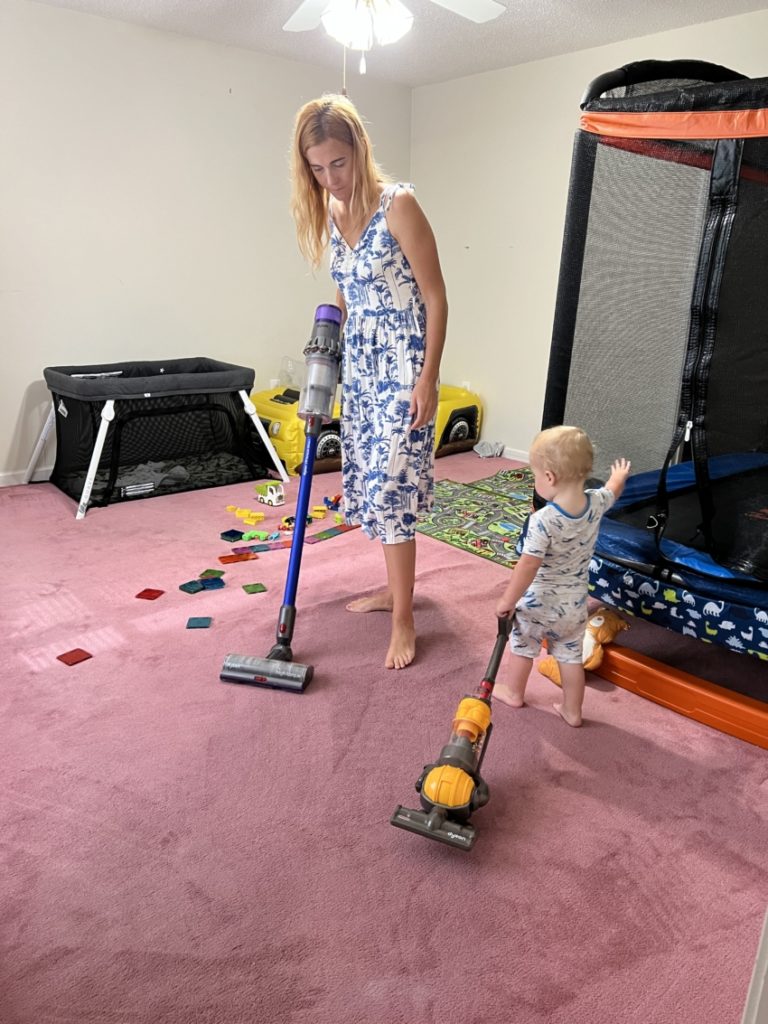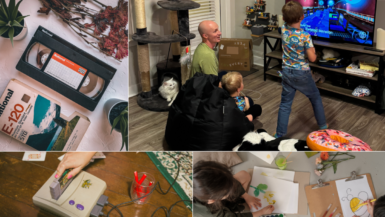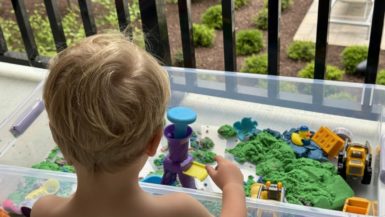If you want to help your child learn how to be responsible, it’s never too early to give them some chores. While you can’t give them complicated tasks, there are plenty of appropriate chores that your 4-year-old should be capable of doing alone that can be fun, engaging, and helpful.
Around this age, you may also notice that your youngster is looking for more ways to be independent, so giving them achievable tasks can also be a way to give them a greater sense of accomplishment and pride when the task is complete.
That being said, making sure the tasks are clear, achievable and fun is the way to be successful when giving chores to your 4-year-old, so let’s have a look at what types of things you could try.
Why Should Preschoolers Have Chores?
Chores aren’t just helpful to you. Not only will it mean you don’t need to clean up after your kids all the time, but chores teach kids responsibility that is important for their future, and are common Montessori activities.
In fact, if your child is mature enough, you can try starting them on some simple chores as young as 3 years old. My younger son was watching his older brother doing tasks all the time and asked for chores at 2.5 years old, so clearly, it’s not impossible to implement.
But remember that you need to manage your expectations when it comes to giving your 4-year-old chores. A chore for a 4-year-old has to be fun and helpful if you want them to actually do it (and do it more than once). It’s also important that the task makes them feel needed to give them a sense of satisfaction in their work.
Cleaning up toys isn’t entirely a chore nor is brushing their teeth as cleaning up after your own mess is is something that kids should be taught to do even as babies.

Tips for Implementing Chores for Preschoolers
Don’t just tell the kids to clean up, as this sounds boring and forced to them. Instead, make them understand why certain things have to be done and take the time to explain what you expect.
For example, explain that if they don’t clean up their room, their favorite toy might be lost the next time they want it. They will suffer, not you. because as an adult, you don’t care if you can’t find “Chase from Paw Patrol” when it’s playtime.
Show them that if they don’t put their plate in the dishwasher, they won’t have a clean plate next time they want to eat lunch. Or if they don’t pack their lunch for school, they will be hungry.
You also shouldn’t expect them to remember and willingly do their chores every single time. While of course, this is the goal, it takes time to get used to new routines and your little one is just 4 years old, they have a lot to learn.
Make sure to gently remind them of their chores when they forget, or prompt your youngster to remember themselves by asking what might happen if they don’t return their toys to the correct place.
It’s a myth that preschoolers can’t tidy up well or can’t organize their things. They absolutely can, but they see and learn from you. If you let the living room be overrun with toys everywhere, then your child won’t feel the need to start cleaning it up either.
Make everything accessible to kids in terms of toy organization and accessibility to snacks, dishes, or anything else they need to get and you won’t have an issue.

10 Chores for 4-Year-Olds:
The chores you choose for your 4-year-old will entirely depend on your own family’s lifestyle, routines, and child’s abilities. So to get you started, here are a few examples of chores that could be appropriate for 4-year-olds.
Set the Table before dinner & clean after
Simple tasks like arranging utensils, plates, and napkins or pouring some water not only contribute to the family routine but also help develop organizational skills. You can assign them anything that you feel is needed in your routine.
After the kids have finished eating, make them clean up anything they have dropped, pack or throw away leftovers, and load their plates into the dishwasher or sink.
Empty Dishwasher
While some aspects of emptying the dishwasher might seem like a grown-up task, your 4-year-old can handle unloading certain items like plastic plates or utensils.
As a bonus, this chore also aids in motor skill development as picking up stacked bowls from the grooves of a dishwasher rack can be a little more tricky than from a shelf.
Laundry
While they might not master the art of folding just yet, sorting clothes or matching socks can be a fun activity that isn’t dissimilar to some of their developmental toys.
Additionally, you can also let them assist in loading and unloading the washing machine or bringing their clothes to the laundry. My kids both loved doing it as toddlers!
Vacuum
These days, there is quite a large range of working toy vacuums that are perfect to introduce toddlers to household chores. You can even find kids’ vacuums that look just like the real thing which is great if your youngster likes to imitate you.
With these lightweight and child-friendly vacuums, you can let them take charge under your supervision while letting them have fun doing a “grown-up” task. As long as you don’t have any delicately balanced items, you can’t go wrong.
Put Groceries Away
You can involve your 4-year-old in all aspects of shopping, from selecting items, placing them in the cart, and eventually helping put groceries away at home.
This not only teaches them about different food items that your family chooses to buy or market, it also reinforces the concept of organization and teamwork.

Feed Pets
If you have pets, feeding them is a part of your child’s routine that is possibly one of the best chores to give them. There’s an extra level of importance when given the responsibility of looking after a real animal, so you’ll have to explain the specific needs and schedules of your pets to your child. But given that most children’s pets are their best friends, this particular chore is one that most kids would take extra care in doing.
Make sure to do your research about what your pets can or can’t eat – like can dogs eat blueberries or not? Or what’s the best treat to give to a rabbit? Teaching this to your child could take some patience and a bit of time to make them aware of this extra responsibility. Given that most children’s pets are their best friends, this particular chore is one that most kids would take extra care in doing.
Pack bag for school
Last but not least, asking your 4-year-old to pack their bag for school is another task that is very easy for a youngster to grasp the consequences of. If they don’t pack their lunch, then they will be hungry at school.
Give them a visual checklist of items they need, such as a snack, water bottle, and any necessary school supplies, and make sure that everything has a place so they can easily complete the task without assistance.






Leave a reply